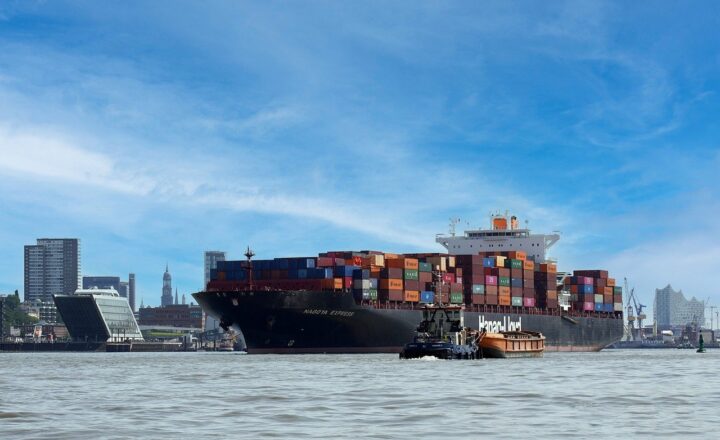The Secrets of Efficient Port Operations and How They Support Global Trade
November 11, 2024

Ports play a crucial role in facilitating international trade and ensuring the smooth flow of goods across the globe. As the first point of entry or exit for many products, efficient port operations are essential for reducing costs, improving supply chain performance, and sustaining economic growth. In this article, we will delve into the secrets of effective port operations and their significance in the global trade landscape.
1. Understanding Port Operations: An Overview
A port is a facility situated on the coast or near navigable waters where ships can dock to load and unload cargo. Port operations encompass various activities, including cargo handling, vessel operations, customs clearance, and logistics management. Efficient port operations involve coordination among numerous stakeholders—shipping companies, port authorities, customs officials, and logistics providers—to ensure that the flow of goods is uninterrupted.
The complexity of port operations necessitates the implementation of advanced systems and practices that enhance operational efficiency. Ironically, ports are often beset by congestion, inadequate infrastructure, and lengthy clearance times, which can hinder their ability to support global trade.
2. Key Components of Efficient Port Operations
- Efficient Cargo Handling: The speed and accuracy with which cargo is loaded and unloaded can significantly impact overall port efficiency. Innovations in container handling technologies, such as automated cranes and robotic systems, have revolutionized the way ports operate, enabling quicker turnaround times and reducing human error.
- Streamlined Customs Processes: Effective customs clearance processes are vital for timely cargo movement. Ports utilize advanced systems like electronic data interchange (EDI) and automated customs systems to facilitate quicker inspections and approvals, thereby minimizing delays in cargo release.
- Integrated Logistics Solutions: Integrating various logistics services—such as transport, warehousing, and distribution—within the port can streamline operations. Utilizing warehouse management systems (WMS) and transport management systems (TMS) can enhance inventory control, reduce lead times, and improve overall logistics efficiency.
- Sustainable Practices: Modern ports face pressure to adopt sustainable practices. Efficient waste management, reduced emissions, and the use of renewable energy sources contribute to promoting eco-friendly operations and enhance port attractiveness for global trade partners.
- Effective Communication: Communication among port stakeholders is critical for operational transparency and efficiency. Employing real-time tracking systems and data-sharing platforms enhances collaboration and ensures that all parties are aware of cargo status, delays, and resource availability.
3. The Role of Technology in Optimizing Port Operations
The advent of technology has significantly transformed port operations. Through smart port initiatives, ports are harnessing the power of the Internet of Things (IoT), big data analytics, artificial intelligence (AI), and automation to improve efficiency. Here are some examples of how technology is being utilized:
- IoT Devices: Sensors connected to IoT networks can monitor equipment performance, cargo conditions, and environmental factors in real-time. This data helps in proactive decision-making and minimizes downtime during operations.
- Data Analytics: Big data analytics can uncover trends and insights related to cargo throughput, vessel scheduling, and seasonal demand, allowing ports to optimize their operations further.
- Automation: Automated systems streamline loading and unloading processes and reduce human error. Some ports are experimenting with automated vehicles for transporting containers within the terminal, enhancing the speed and efficiency of port operations.
The successful implementation of technology not only optimizes operations but also enhances port competitiveness on a global scale, attracting shipping lines and businesses to leverage their services.
4. The Economic Impact of Efficient Ports
Efficient ports are vital to the economy for several reasons:
- Boosting Trade Volumes: By reducing the time and costs associated with cargo handling, efficient ports enable higher trade volumes. This scalability is critical as global trade continues to expand due to e-commerce and globalization.
- Job Creation: Ports offer numerous jobs in various sectors, including administration, logistics, maintenance, and operations. Improved efficiency often results in increased economic activity and, subsequently, new job opportunities.
- Competitive Advantage: Regions with efficiently operated ports attract more shipping and logistics businesses. This concentration can lead to economic clusters that benefit local economies through enhanced trade relationships and partnerships.
- Foreign Direct Investment (FDI): Countries with modern, efficient ports are more likely to attract foreign investment. Investors often seek to penetrate local markets through effective logistics and supply chain management, making efficient ports a vital consideration.
Ultimately, investing in efficient port operations yields significant economic returns and positions countries favorably in the global marketplace.
5. Case Studies: Successful Port Operations
To exemplify the significance of efficient port operations, let’s consider two case studies from around the world:
- Port of Rotterdam: The largest port in Europe, the Port of Rotterdam is renowned for its advanced automation and integration of logistics services. The port’s extensive use of RFID technology streamlines cargo processing and tracking, significantly enhancing throughput and observation of cargo conditions.
- Port of Singapore: Famous for its efficiency and advanced technology, this port uses automation extensively in container handling with automated cranes and vehicles. The Port of Singapore’s commitment to sustainability has led to innovative practices like energy-efficient systems and reduced emissions, improving both operational productivity and environmental responsibility.
These examples underscore how strategic investments and technological innovations can create thriving port operations that support global trade effectively.
Conclusion
Efficient port operations are indispensable in facilitating global trade. They reduce costs, enhance cargo handling, and create economic benefits for local regions and countries as a whole. As ports adapt to modern technological advancements, it is vital for stakeholders to prioritize innovative practices, automation, and effective communication to ensure seamless operations.
As we move into an era of increasing globalization, the importance of ports will only continue to grow. Countries that recognize and invest in efficient port operations will pave the way for economic prosperity through enhanced connectivity with international markets. Consolidating operations, investing in technology, and focusing on sustainable growth are the keys to unlocking the full potential of ports as engines of global trade.








